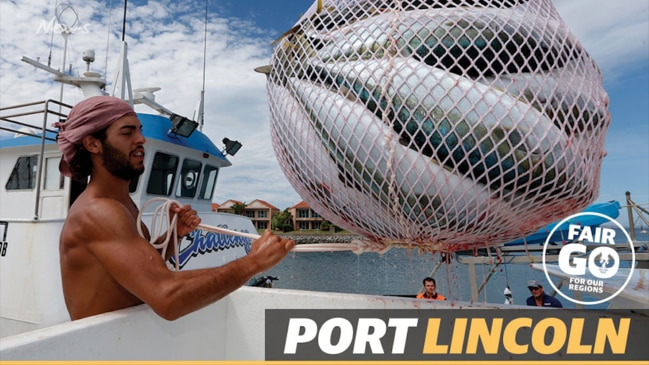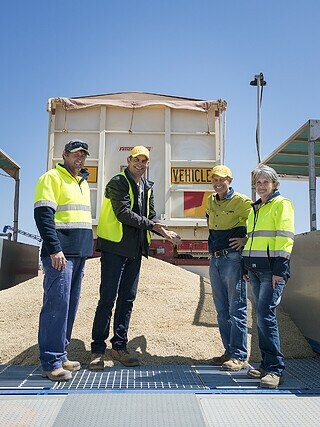New player enters market with barley delivery on the EP
New player in South Australia’s grain handling market - T-Ports - received its first delivery on the Eyre Peninsula this week.

SA Business
Don't miss out on the headlines from SA Business. Followed categories will be added to My News.
- ADM agrees to trade out of T-Ports’ Lucky Bay site
- How to get the most out of your Advertiser digital subscription
After years of planning, T-Ports new port and storage facility on the Eyre Peninsula has received its first load of grain.
The load of barley was delivered by the Kaden family, of Mitchellville, just outside Cowell, and was received into T-Ports’ Lucky Bay bunker site.
The Lucky Bay site is part of a $130 million port project, with the company’s other bunker site at Lock on the central EP officially opened on Friday.
T-Ports chief executive Kieran Carvill said the first load delivered this week represented a significant milestone in the project.
“This project has been many years in the making and it has taken a lot of time and a lot of effort to reach this point,” he said.
“We are looking forward to offering Eyre Peninsula grain growers an alternative storage option this harvest.”

The two bunker sites at Lock and Lucky Bay have a combined 500,000 tonnes of grain storage capacity, with a further 24,000 tonnes of storage in steel silos at the Lucky Bay port currently under construction.
With Lucky Bay a shallow port, a bespoke transhipment vessel, titled the Lucky Eyre will be used at the site.
Dry commissioning on the transhipment vessel has been completed in China with wet commissioning due to start shortly.
MORE NEWS
Big stink over fish trading plans
ACCC wine report a ‘mixed bag’
The vessel, which has a capacity of 3500 tonnes, will arrive in Australia later in the year.
“T-Ports is committed to the Eyre Peninsula and we know this development will provide grain growers in the region the competition in the supply chain they have been waiting a long time for,” Mr Carvill said. “We are proud to support South Australian businesses and regional communities along the process.”
